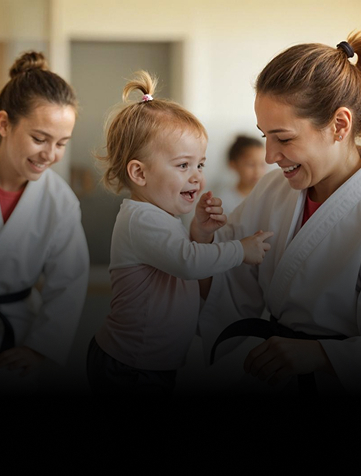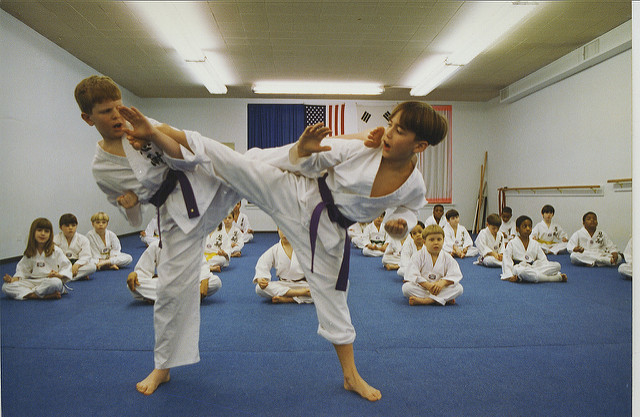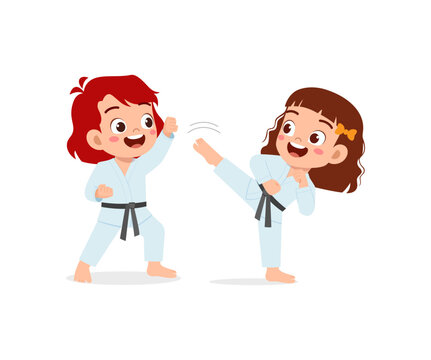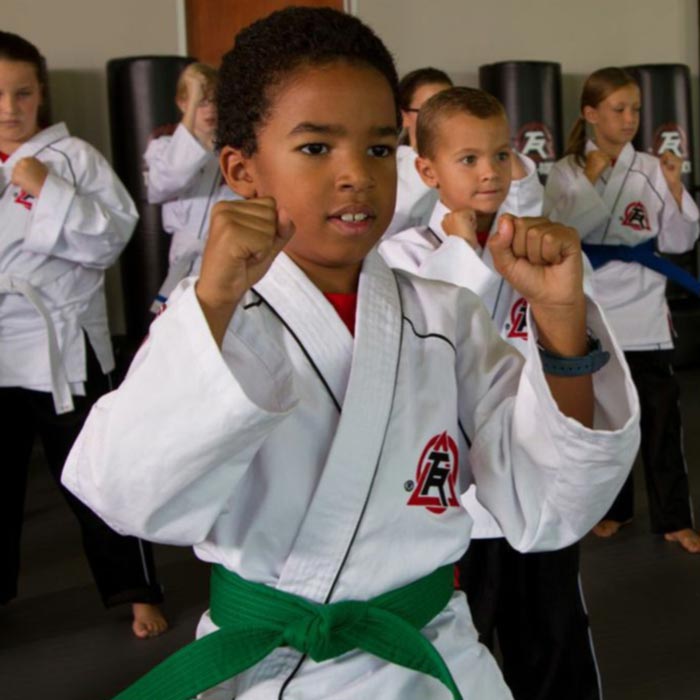How Karate for Kids Can Increase Self-confidence and Self-control in Youthful Martial Artists
Karate for kids uses an one-of-a-kind opportunity to construct confidence and self-control in young martial musicians. As they learn new strategies and face difficulties, they not just acquire abilities yet also establish a solid sense of self-regard. This organized atmosphere urges them to respect the journey of enhancement. How does this training equate right into their day-to-day lives? Discover the much deeper connections that make karate greater than just a sport.
The Importance of Confidence in Childhood Advancement
Self-confidence is an essential foundation in childhood advancement. When you support your youngster's self-worth, you empower them to face challenges, take risks, and reveal themselves easily. Youngsters with self-confidence are a lot more happy to discover social scenarios and brand-new tasks, which can cause enduring relationships and beneficial experiences.Encouraging your child to get out of their comfort zone fosters resilience. They learn that failure isn't the end yet instead a stepping rock to success. By commemorating their accomplishments, regardless of exactly how small, you help them acknowledge their capacities and worth.In this trip, support and positive reinforcement from you play an important role. Whether it's through praise or just being present, your involvement enhances their self-confidence. As they expand, this self-assurance becomes a lifelong possession, equipping them to browse both obstacles and chances with a strong feeling of self.
Exactly How Karate Educates Discipline and Focus
Martial arts helps you build discipline and focus with its structured training routine. As you exercise mindfulness throughout each session, you'll find out to focus far better both on and off the mat. And also, establishing and achieving objectives in martial arts reinforces your ability to remain mindful and fully commited.
Structured Training Program
While you take part in karate training, you'll rapidly discover just how a structured routine instills technique and focus in young practitioners. Each course complies with a details style, consisting of warm-ups, strategy practice, and sparring. This uniformity teaches you to commit and value the process to improvement. As you find out strategies and types, you establish a feeling of obligation for your very own progress.The organized environment motivates you to establish goals, whether grasping a brand-new belt or refining a kata. You'll discover that remaining focused throughout drills and classes develops your concentration. The discipline you grow in martial arts extends beyond the dojo, favorably influencing your schoolwork and daily routines. Each session enhances the importance of dedication, assisting you grow right into a more regimented person.
Mindfulness in Technique
As you practice karate, you'll find that mindfulness ends up being a crucial part of your training. Each action needs your complete attention, helping you stay concentrated on the present moment. You'll discover to ignore disturbances and focus on your breathing, movements, and intentions. This heightened awareness sharpens your reflexes and enhances your discipline.During sparring or forms, you'll discover the significance of being psychologically present - Karate Salisbury MD. You'll discover exactly how this emphasis not just boosts your strategy yet additionally constructs your self-confidence. By exercising mindfulness in martial arts, you cultivate perseverance and strength, crucial attributes that expand past the dojo. By doing this, martial arts shows you to harness your mind, assisting you establish a regimented method to challenges both on and off the mat

Personal Goal Setting Techniques
Establishing goals in martial arts isn't just concerning making belts; it's an effective method to grow self-control and emphasis. When you set specific, attainable targets, you produce a roadmap for your progress. As an example, rather than simply aiming to enhance your kicks, attempt concentrating on understanding a specific method monthly. This approach keeps you determined and engaged.Breaking down bigger objectives into smaller sized, workable actions helps you track your development and commemorate small success in the process. Whether it's developing your stance or boosting your sparring endurance, every objective reinforces your commitment. As you attain these objectives, you'll build confidence in your skills and create a solid sense of self-control that prolongs past the dojo right into everyday life.
Building Durability With Martial Arts
Fighting style, particularly karate, uses children an unique chance to develop resilience in a helpful atmosphere. In courses, they encounter challenges that push their limits, whether it's grasping a brand-new strategy or sparring with a companion. Each trouble, like a missed out on kick or a shed match, becomes a chance to learn and grow.As they practice, kids learn to embrace discomfort and keep trying, even when things get difficult. They discover that failure isn't the end; it becomes part of the trip. This frame of mind assists them recover stronger, not just in the dojo, but in everyday life.With each challenge they overcome, your youngster develops self-confidence in their capability to deal with obstacles, fueling their determination. Via martial arts, they'll recognize that strength isn't nearly physical strength; it has to do with psychological grit and willpower, equipping them to face whatever life tosses their method.
The Function of Respect in Martial Arts Educating
Respect is a fundamental concept in karate training, fostering a society of technique and sociability amongst pupils. When you step onto the dojo floor, you're not simply discovering techniques; you're also finding out to respect your teachers, peers, and the art itself (Karate Salisbury MD). Bowing at the start and end of class isn't just a formality; it signifies your recommendation of others' dedication.as and initiatives you establish mutual respect, you'll find it boosts your learning experience. You'll listen a lot more attentively to your instructor and gain insights from fellow pupils. This environment motivates positive objection and support, allowing everyone to expand together.Moreover, respect cultivates self-control. Acknowledging the worth of difficult job and humility assists you remain focused on your training. Subsequently, this respect translates right into your everyday life, enhancing your helpful site communications and connections outside the dojo. Via karate, you discover that regard is vital for individual growth and neighborhood structure
Attaining and establishing objectives Success in Martial arts

Social Skills and Team Effort in the Dojo
While training in the dojo, kids naturally develop important social skills and synergy capacities. As they nfl super bowl 2021 exercise together with peers, they discover to communicate effectively, share space, and assistance each other. Each class presents opportunities for cooperation, whether it's during partner drills or group exercises. This synergy promotes friendships and creates a feeling of belonging, making the dojo a nurturing environment.Kids likewise acquire important dispute resolution skills. When they come across difficulties, such as disputes throughout sparring, they find out to look at this now navigate these scenarios constructively. They exercise patience and empathy, understanding that every person has various strengths and weaknesses.Moreover, getting involved in group activities grows a sense of liability. You'll see your youngster learning to depend on teammates and take duty for their function in a team. These experiences not only boost their martial arts trip however additionally furnish them with social devices they'll bring right into other locations of life.

The Long-Term Perks of Martial Arts Beyond Youth
As children mature and move right into adulthood, the benefits of martial arts extend far past the dojo. You'll find that the self-control and emphasis found out through martial arts can convert into your expert and scholastic life. Establishing and achieving goals in fighting styles cultivates a strong work principles, which can push you to master any endeavor.Moreover, the confidence got from understanding techniques and sparring can boost your self-worth, assisting you take on challenges head-on. This resilience ends up being vital as you encounter the uncertainties of adulthood.Additionally, the social skills developed through teamwork and friendship in the dojo can result in far better relationships in both personal and expert balls. You'll discover to interact efficiently, resolve problems, and build a helpful network.Ultimately, karate shapes not just proficient martial musicians, however all-round individuals prepared to take on the world.
Often Asked Concerns
What Age Is Finest to Begin Karate for Kids?
You can start karate as very early as age 4 or five, but it frequently relies on your youngster's maturation and rate of interest. Discovering a class that suits their age and power level makes a big distinction.
Exist Any Kind Of Wellness Conveniences From Exercising Karate?
Yes, exercising karate deals various health advantages. You'll enhance your stamina, versatility, and sychronisation while boosting cardio physical fitness. And also, it improves focus and psychological well-being, making it a superb choice for total physical and mental wellness.
How Often Should Youngsters Attend Karate Courses?
You ought to urge your kids to attend karate courses at least 2 to three times a week. Consistency aids them learn strategies efficiently and establish abilities, making their experience much more gratifying and delightful in the future.
Can Karate Aid With Taking Care Of Anxiety in Children?
Yes, martial arts can aid manage stress and anxiety in youngsters. It educates focus and self-constraint while supplying a secure electrical outlet for power. You'll discover your youngster growing extra calm and positive as they exercise routinely.
What Equipment Is Required for Children Beginning Karate?
